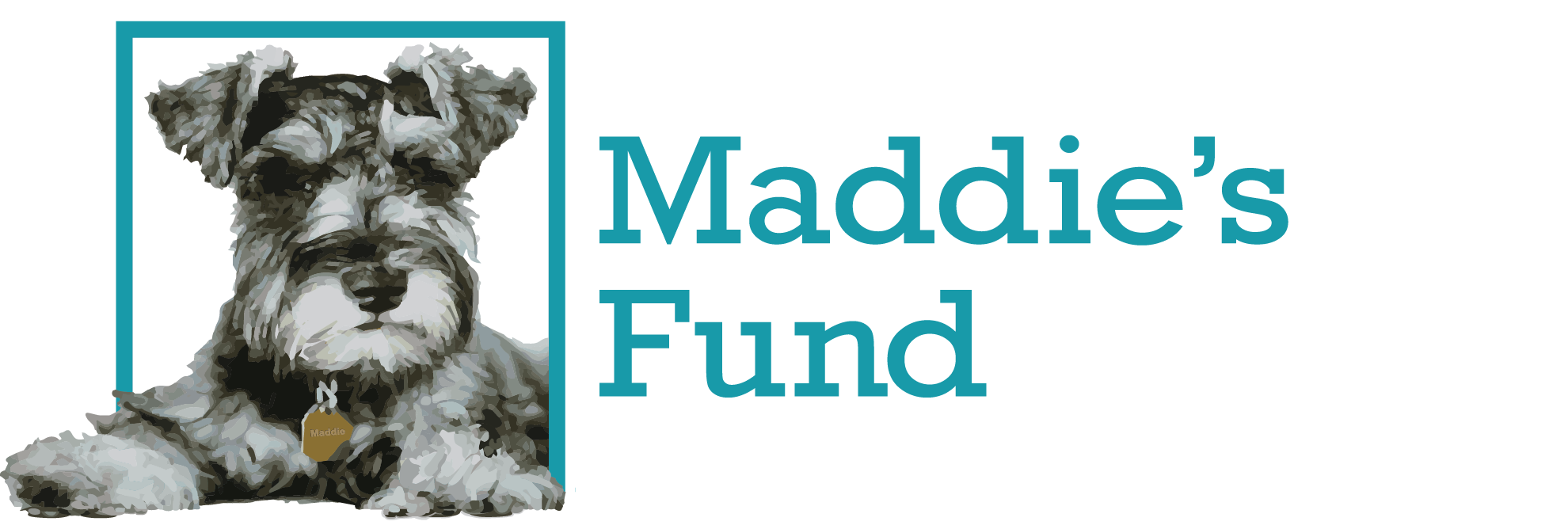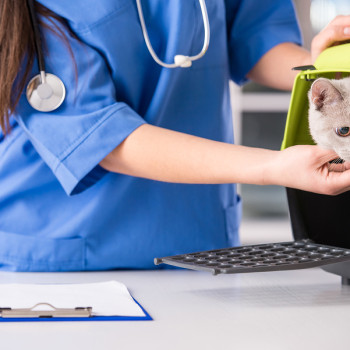They’re the all-too-often unsung heroes of veterinary medicine, but we’re going to sing about them here. We’re talking about veterinary technicians, with a special chorus of gratitude for those who go into shelter medicine practice.
Veterinary technicians assist in surgery, assess vitals, draw blood, comfort frightened patients, explain procedures to clients and do everything registered nurses and medical technicians do in human medicine.
In animal shelters, they can be in charge of intake exams and procedures, conduct daily rounds of pets in the organization, work for academic programs, train and oversee medical teams, provide support for spay/neuter, field work, cruelty and forensic investigations and more.
We asked three shelter medicine programs at veterinary colleges in the U.S. to suggest a technician working in shelter medicine to honor this week, which is National Veterinary Technician Week. They enthusiastically nominated three techs, and we can see why!
Sylvia Tucker, RVT
Veterinary Technician
Maddie’s® Shelter Medicine Program at the University of Florida
Nominated by Program Director Dr. Cynda Crawford
Just reading a list of everything Sylvia Tucker does for the UF shelter medicine program is exhausting: She sets up the instructional labs and supplies for students in their Community Cat Management course, Veterinary Forensics course and their shelter consult clerkship clinical rotation.
She helps arrange various teaching labs for students in the Shelter Medicine Club and the Feline Medicine Club. She assists students who perform shelter medicine research studies in the lab and is their daily go-to person. She also performs most of the diagnostic tests on samples from shelters that have reached out to the program for assistance in resolving a disease outbreak. On a volunteer basis for the past several years, Sylvia is in charge of all supplies and equipment necessary for the Operation Catnip trap-neuter-return clinics.
Exhausting it might be, but Tucker says it’s also rewarding. “There’s nothing like seeing the conditions animals are living in, along with their chances to get adopted, improve,” she said. “These pets are homeless. They have no owner to get care for them. Giving them that care is the best thing about being a shelter medicine technician — except seeing them get adopted!”
Karen Nieves, LVT
Medical Department Manager/Feline Foster Care Coordinator
Nominated by Maddie’s® Shelter Medicine Program at Cornell University Director Dr. Elizabeth Berliner
Like most techs in shelter practice, Karen Nieves of the SPCA of Tompkins County in Ithaca, New York, wears many hats. She manages the shelter’s medical program, supervising veterinary assistants and interns as well as medical volunteers and Cornell veterinary students who treat pets at the shelter.
She’s in charge of the cat and kitten foster programs, which she says is a huge job. Karen does intake exams, oversees medical care for cats and kittens in foster care, and to top it all off, she does all the inventory and ordering for the medical department.
I began working at the Heart of the Catskills Humane Society when I was in college, and fell in love with shelter medicine,” she said. “I worked in an animal hospital in Oregon after that, but I knew that working in a shelter was what I wanted to do. So I moved back to New York and started working here at Tompkins.” She’s been there ever since.
“I love seeing the foster families come in and take these sickly or scared cats and kittens and make them mentally and medically healthy,” she said. “I also love being able to help animals who come in who are sick or hairless or emaciated, and be able to help them get healthy again, move to the adoption center, and then go home. Nothing is more rewarding than to take an animal who is scared and broken and fix it, so they can go to a new home and be happy!”
Stephanie Koester, CVT
Manager, Shelter Medicine Program, University of Wisconsin-School of Veterinary Medicine
Nominated by Program Director Dr. Sandra Newbury
Stephanie Koester is the manager of the shelter medicine program at the University of Wisconsin. She assists veterinarians in treating animals, and works in outbreak response at shelters, collecting samples and seeing how the program can help. She also triages incoming requests for assistance from shelters, making sure the right team member handles them so everyone gets the support they need.
Stephanie came to the University from the Dane County Humane Society after getting a Bachelor’s Degree in animal science at UW. She started out working in private practice, but once she discovered shelter medicine, she was hooked. “I fell in love with working in shelters,” she said. “I knew I’d found my path.”
Now that she’s found it, she says she’ll never leave it. “It’s rare that someone goes to work every day with excitement, but that’s how I feel,” she said. “A lot of my friends can’t even imagine that feeling. The work can be emotionally, mentally and physically challenging, but if you work like crazy to put on a big adoption event, it’s all worth it when you see all the happy new homes.
“You’re part of creating a bond between a person and animal that will last for years to come, and you know you had a part in that,” she continued. “Ever day, technicians who work in shelter medicine have such a great impact on so many animals and so many families. I don’t think you can get that in any other job.”
All three of our featured techs encouraged their colleagues to think about working in shelter medicine, a career path many don’t know exists or haven’t considered.
“Working in shelter medicine allows you to use all your skills — surgery, general medicine, helping families, caring for animals,” Stephanie said. “And there are so many opportunities in shelters, so many shelters out there looking for good techs. And while it can be an emotional roller coaster, there is nothing more satisfying than seeing a happy ending that you helped create.”
Happy Veterinary Technician Week to all technicians in shelter medicine. We think you’re the best!




